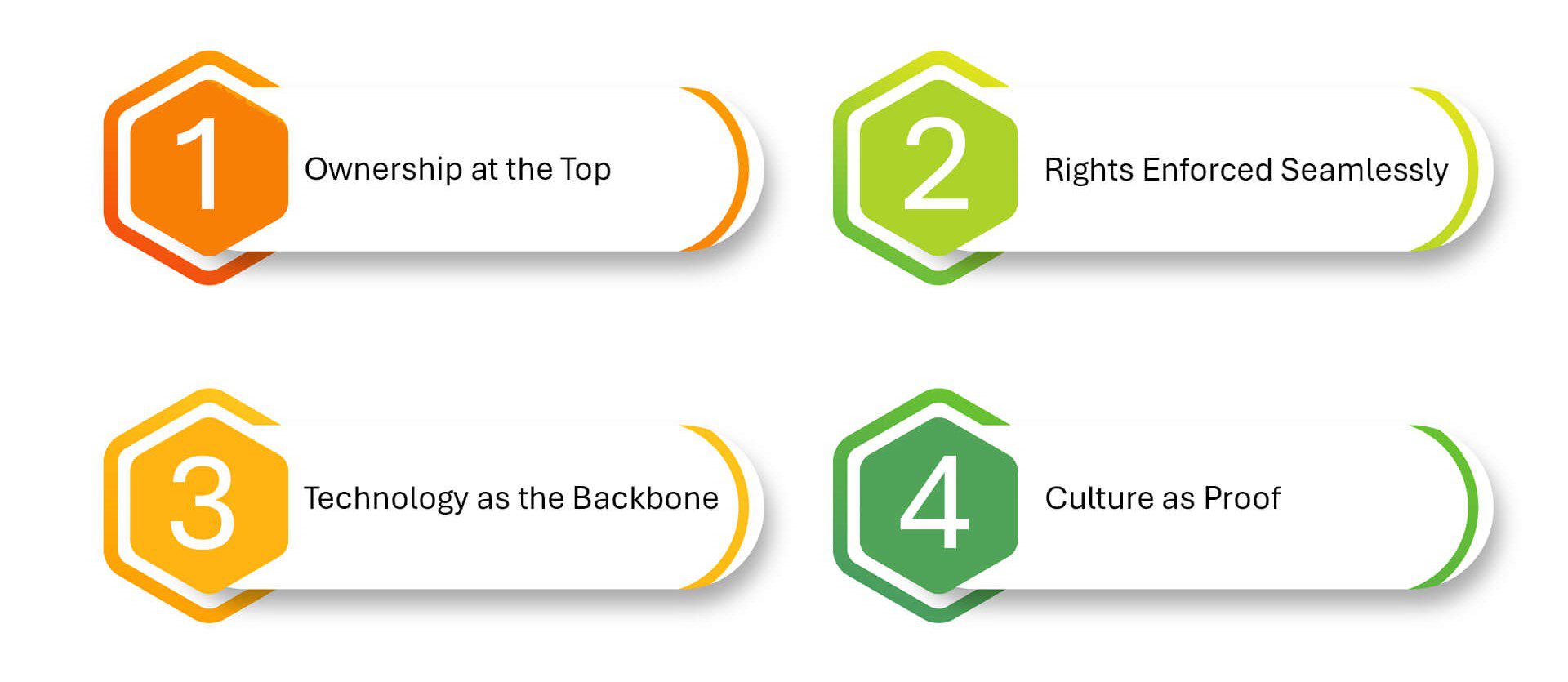From Digital Freedom to Corporate Responsibility
In the first blog of this series, we asked a provocative question: Have we unknowingly given up our digital freedom in the age of AI? While individuals must become more aware of their digital footprints, the real responsibility lies with enterprises—the custodians of citizen data.
Yet, too often, organizations treat privacy as a legal checkbox. Policies get written. Boxes get ticked. Audits get passed. But when compliance becomes the ceiling instead of the floor, the people at the heart of it—the citizens—are left behind. In an era where AI models learn, predict, and even influence human behavior, that mindset is no longer acceptable.
The reality is clear: compliance keeps regulators satisfied, but accountability builds trust.
The Illusion of Privacy Through Compliance
On paper, companies can claim near-perfection. They boast GDPR certifications, pass CCPA audits, and comply with India’s DPDP Act. Regulators nod, executives celebrate, and annual reports shine.
But when a citizen tries to exercise their rights—requesting access, correcting inaccuracies, or deleting data—the process is often clunky, delayed, or impractical. Compliance creates an appearance of protection, but without accountability, the citizen experience remains broken.
What Accountability Really Looks Like
True accountability is not theoretical; it is measurable, enforceable, and cultural.

- Ownership at the Top
Privacy outcomes must be tied to executive performance, not relegated to compliance teams. Leadership should carry the weight of accountability.
- Rights Enforced Seamlessly
Citizens should be able to access, correct, or erase data with the same speed that companies monetize it. If personalization happens in real time, so should privacy protection.
- Technology as the Backbone
Legacy systems cannot keep up with modern demands. Enterprises need intelligent, real-time data governance tools that make privacy enforcement as agile as data monetization.
- Culture as Proof
Employees must be trained, rewarded, and empowered to treat privacy as part of their role. When protection becomes cultural, accountability moves beyond slogans.
Why Commitment Defines Leadership
Fines for non-compliance are costly, but the bigger price is trust. In the digital economy, trust is the only true currency.
A compliant organization survives; an accountable one thrives. Customers reward companies they trust with loyalty. Regulators engage accountable organizations as partners. Employees stay with companies that align with their values. Accountability is no longer optional—it’s the differentiator between relevance and irrelevance.
My Take
If reclaiming digital freedom is the responsibility of individuals, enforcing it is the responsibility of enterprises. Compliance may have once been enough, but today it’s the bare minimum. Accountability is the bridge between legal checkboxes and lived trust.
The question is simple: Are enterprises prepared to enforce citizen rights with the same rigor they use to monetize data? Those who commit will lead the future of digital trust. Those who don’t will fade into checkbox history.






